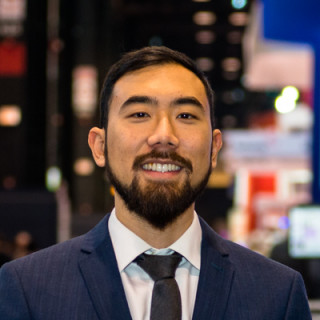It was a Tuesday morning, two days before the start of the American College of Physicians (ACP) 2022 meeting in Chicago. Then president of the society George M. Abraham, MD, was preparing an address for a combined assembly of the ACP board of governors and board of regents.
Reflecting on the past year, Dr. Abraham recalled his presidential efforts to foster inclusivity in internal medicine and advocate for less privileged groups across the specialty: increasing gender equity and leadership opportunities for women, fostering racial equity, and recognizing the contributions of international medical graduates.
His experiences reminded him of the formation of the Women’s Tennis Association nearly 50 years prior. He explained that at the height of their careers, nine women, including tennis legend Billie Jean King, had dropped out of the International Tennis Federation to form their own coalition, risking their professional careers and reputations. When asked why they took the risk, their response was that they did it for gender pay parity, believing that they were called on behalf of women to show up, to stand up, and to speak out. Just as they felt compelled to make a stand then, Dr. Abraham realized that as an internist and infectious disease specialist he was responsible for upholding the needs of his patients, especially in light of the pandemic.
He told the physician membership at the assembly, “As leaders, we are called to show up, to stand up, and to speak out for our patients, for our profession, for the science of medicine and for the truth in medicine. And that's really what leadership is about — to continue to advocate constantly … and to make it a better health care landscape, where everybody can feel that they are participating equally.”
In addition to serving as ACP president for the 2021-2022 term, Dr. Abraham has been working as chief of medicine at Saint Vincent Hospital in Worcester, Massachusetts and professor of medicine at the University of Massachusetts Medical School.
He acknowledged that the past year has presented many challenges for physicians. Patients have been returning to doctors’ offices and hospitals with complaints left untreated due to reduced access during the pandemic. Undiagnosed cancers, high blood pressure, and the effects of extended isolation all started to come to the forefront. And for practicing physicians, he said the elevated stress and risks of the pandemic contributed to a “great resignation in internal medicine.”
But the past year has also been a period of incredible progress in medicine, Dr. Abraham said, highlighting several major developments that he believes will affect the field moving forward:
Increased access to care
On the policy front, the widespread integration and reimbursement of telehealth has broadened access to care and likely points to the increasing adoption of virtual platforms in medicine.
“We feel that’s been a great equalizer in a way because … we’ve increased the access to care,” Dr. Abraham said. “Instead of expecting people to arrive at our office, we've brought our office to their bedrooms or homes, or brought care to people who may have delayed or not received care.”
Open information sharing
On the scientific front, the development of vaccines has accelerated, with applications in the works for a wide range of diseases and conditions. An important upshot of this accelerated development is that clinical research appears to have become much more collaborative. Dr. Abraham found that research can often be siloed and territorial, but the pandemic has spurred a “much more open sharing of information,” making research less about who could finish first in a race, and more about how people could win together, which helped lead to the rapid development of the COVID-19 vaccine. The implication for future research is that continued collaboration may help reduce duplicative efforts and decrease costs.
There has also been increased access to the latest research and medical information on a global scale. And when more people participate, there tends to be more diversity of thought and better input, Dr. Abraham noted. This newly gleaned knowledge then translates into future growth. “That’s a huge plus from a scientific standpoint,” he explained. “We hope that this will be the pathway for future novel treatment developments, future scientific advances, where there is less sheltered development. If we all collaborate and make it happen, we are all the better for it.”
The need for rapid development has also allowed for vetting of research and information on a more real-time basis, assessing the effectiveness of new treatments even prior to clinical testing.
Equity around the world
The rapid development and distribution of COVID-19 vaccines and treatments has underscored disparities in care, and Dr. Abraham emphasized how the ACP advocated for equity around the world — by hosting global forums to discuss challenges and by pushing Congress to share resources with countries that have either no access or unaffordable access to care.
“This pandemic has taught us that we [in the U.S.] are not in a cocoon where if we have all the vaccines we will be immune while the rest of the world suffers — that doesn’t happen,” he said. “We got hit as hard as anyone else.”
One of his aims as president was to help deliver much of this information — the latest scientific advances, clinical learnings, etc. — to ACP attendees. And bringing this information together through networking, talking with physicians in the community, and advocating for his colleagues has been one of Dr. Abraham’s great joys during his term.
So, too, have been his experiences with patients. “I've taken care of plenty of people who have been through COVID-19 and otherwise, and just sitting and talking to them about their stories has sort of brought me to recognize that sometimes the challenges that people go through are, for them, a life-changing transformational experience,” he said. Despite the difficulties Dr. Abraham has faced, from threatening phone calls to the untimely passing of patients, that lesson has encouraged him to take on his work as a calling.
“What it has taught me is that I need to be a steady voice to continue to advocate for reason, against misinformation and disinformation,” he added. “I believe that that is my role as a physician, not only to be a physician to the individual in terms of providing the best scientific standard of care, but also to be a spokesperson, to be an adviser, to be available to patients to answer questions, and to speak out for the truth in science.”
What potential developments excite you about the next year in medicine? Share your thoughts in the comment section.
Illustration by April Brust







